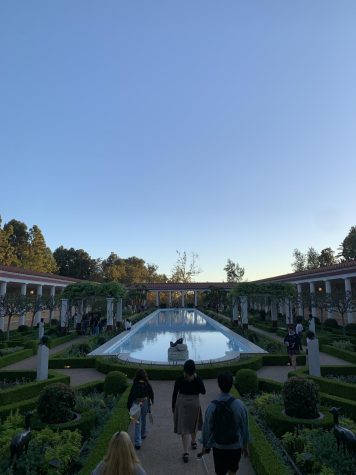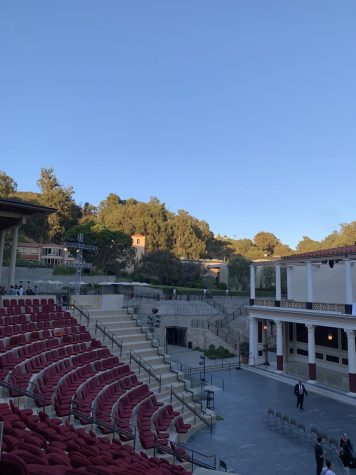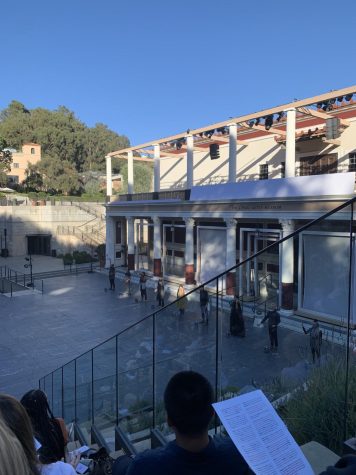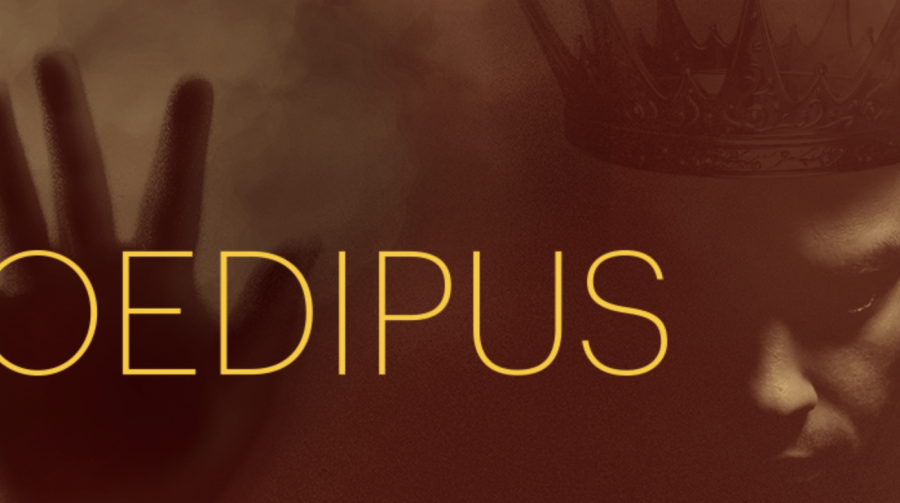Oedipus: Performed by Deaf West at the Getty Villa
October 21, 2022
On the 21st of August, students from the CAP program, AP Art History, Art History: Modern Themes, and AP Literature and Composition traveled to the Getty Villa to see the production of Oedipus. Written by Sophocles, the ancient Greek play Oedipus remains a classical and thrilling story that explores the themes of fate, communication, and power.
Please click on this link if you would like to read a summary of the play.

However, this production of Oedipus was not like any normal play. This production was produced by the Deaf West Theatre Company; Andrew Morrill and Alexandria Wailes adapted the use of American Sign Language and Jenny Koons directed the production. The entire play was a blend of Ancient Greek, English, American Sign Language, and protactile.
Prior to watching the play, I was curious about how the actors would convey the emotions and meanings of the characters to audience members who were not very familiar with American Sign Language. I was also interested in seeing how the director would modernize the ancient Greek language into modern American Sign Language.
Upon arriving at the Getty Villa amphitheater, I was handed a sheet of paper that included the dialogue that would only be signed. This sheet of paper was important because it allowed those who were not familiar with American Sign Language to understand what the actors would be signing. Parts of the dialogue had one character sign while another spoke the translation of the signing. In other cases, only American Sign Language was used.

While watching the production, I was completely amazed by the intensity of the actors’ body language and facial expressions. From Oedipus, to Creon, to Jocasta, to the members of the chorus, each actor powerfully communicated their emotions. One might think that the lack of spoken words would diminish the strength of them. However, the opposite occurred. The silence in fact contributed to the intensity of the words, adding a more complex meaning to the themes of miscommunication and fate. Perhaps the most powerful moments were Jocasta’s emotional conversation with Oedipus and Oedipus’ monologues. Through the dialogue between Jocasta and Oedipus, we see the strong character development occur as the dramatic irony of the play intensifies. Furthermore, in Oedipus’ monologues, we can observe the slow deterioration of his character as he grows from a noble and brave king to a guilt-ridden man.

This modernized production of Oedipus was truly a unique experience. Not only is this production the first of its kind, but it also challenged the norms of a theatrical performance. This production truly highlights the importance of diversity and inclusion within the performing arts.



